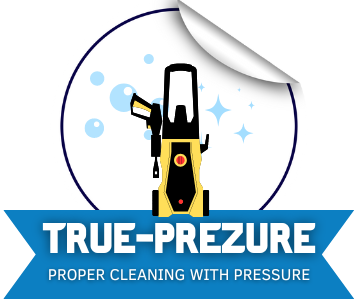Winter is here, and with the colder temperatures comes a whole new set of challenges for car owners. Snow, ice, salt, and other winter road debris can wreak havoc on your vehicle’s exterior. So you may be wondering: how often should I wash my car in the winter?
While it might be tempting to skip washing your car during this season altogether, neglecting its cleanliness could lead to serious damage over time. In this blog post,
we’ll explore why washing your vehicle during winter months is important and provide tips on how often to do so – ensuring that your ride stays looking its best all season long!
What are the benefits of washing your car in the winter?
Winter can be tough on your car. From snow and ice to salt and sand, the elements can take a toll on both the exterior and interior of your vehicle. This is why it’s important to wash your car regularly during the winter months.
One benefit of washing your car in the winter is that it helps prevent damage from road salt. Salt used to melt ice on roads can corrode metal parts of your car, causing rust and other issues over time. Regularly washing off this salt residue helps protect against potential long-term damage.
Another benefit of washing your car in the winter is that it helps maintain visibility while driving. Dirty windows, mirrors, and headlights can reduce visibility when driving in snowy or icy conditions. A clean windshield will also help you see any potential hazards more clearly.
Regularly washing your car in the winter also keeps it looking great! The buildup of dirt, grime, and salt residue can make even a new vehicle look worn out before its time.
Taking care of our cars shows respect for them as well as for ourselves; we want our vehicles to last longer so that they serve us better over time.
How often should you wash your car in the winter?
Winter can be a challenging time for car owners, particularly when it comes to keeping your vehicle clean. With harsh weather conditions and increased road salt usage, knowing how often you should wash your car in the winter is essential.
One of the main reasons for washing your car regularly during this season is to remove the buildup of dirt, grime, and ice-melting chemicals. These substances can cause corrosion and damage to your vehicle’s paintwork if not properly removed.
So how often should you wash your car in the winter? As a general rule of thumb, it’s recommended that you give your vehicle a thorough cleaning every two weeks. This frequency will help ensure any harmful residue is consistently removed before causing long-term damage.
However, factors such as local climate variations or heavy driving through slushy roads may require more frequent washing sessions. It’s essential to gauge what works best for you based on these circumstances while keeping up with regular maintenance checks throughout the colder months.
What are the best products to use when washing your car in the winter?
Choosing the right products for washing your car in the winter is crucial to ensure that your vehicle remains clean and protected. Here are some of the best products you can use for a successful winter car wash.
Firstly, consider using a high-quality snow foam or shampoo designed specifically for cold weather conditions. These products help to break down dirt and grime without damaging the paintwork on your car.
Secondly, invest in a good quality microfiber wash mitt or sponge. Using these materials will help prevent scratches and swirls from forming on your vehicle’s surface during washing.
Thirdly, make sure to choose an effective wheel cleaner specially formulated for use in low temperatures to keep brake dust at bay while protecting your wheels from damage caused by road salt.
Fourthly, protect your glass surfaces with a dedicated windshield washer fluid designed specifically for winter driving conditions. This product helps melt ice buildup quickly while preventing streaking on windshields and mirrors.
Don’t forget about waxing! Applying a layer of wax after washing protects against harsh elements like snow and salt corrosion while giving you an extra shiny finish!
By choosing these recommended car-washing products during winter months, you can uphold the integrity of both exterior paint as well as its mechanical parts throughout all cold seasons!
How to wash your car in the winter
Winter car washes are a must, but they’re not always easy. Cold temperatures and icy conditions can make the task of washing your car more difficult than usual. Here’s how to do it right.
First, choose a day when the temperature is above freezing and there isn’t any snow or ice on the ground. This will help ensure that water doesn’t freeze on your car after you’ve washed it.
Before you start, rinse your car thoroughly with a hose to remove any loose dirt and debris. Then, use a high-quality soap specifically designed for winter washing to clean your car’s exterior.
Next, use two buckets: one for soapy water and one for rinsing off your sponge or mitt. This will

help prevent scratching caused by dirt particles trapped in the sponge.
Be sure to dry your car thoroughly after washing it. Water left sitting on metal surfaces can cause rust over time.
Don’t forget about the undercarriage! Salt from winter roads can build up here and cause corrosion if left unchecked. Use an undercarriage spray specifically designed for winter driving to protect these areas of your vehicle.
Following these steps will help keep your vehicle looking its best throughout the winter months while protecting it from harsh weather conditions!
Conclusion
As we come to the end of this article, it’s clear that washing your car in the winter is vital. Not only does it help to keep your car clean and looking good, but it also protects your car from potential damage caused by salt, dirt and other debris on the road.
By following a regular cleaning schedule, you can ensure that your car stays protected throughout the winter months. However, remember not to overdo it – excessive washing can actually harm the finish of your vehicle.
Additionally, using quality products when washing your car is essential. Look for gentle soaps designed specifically for use on cars and avoid harsh chemicals that could strip away wax or cause scratches.
Make sure you take care when washing your vehicle in colder temperatures as water can freeze quickly causing potential hazards. Use warm water if possible and dry off excess moisture before parking inside.
While there may be some debate about how often you should wash your car during winter weather conditions; however keeping up with a routine maintenance plan will help protect both the appearance and functionality of any vehicle no matter what time of year.
Faq
Should I wash my car every day in the winter?
It’s not necessary to wash your car every day during the winter season. In fact, washing it too frequently can strip away its protective wax layer and cause damage to the paint.
However, it’s important to keep your car clean during harsh weather conditions as salt and dirt can build up on the surface, leading to rust and other damages. Instead of daily washes, aim for regular maintenance throughout the season.
A good rule of thumb is to wash your car once a week or every two weeks depending on how often you use it and how dirty it gets. Pay attention to areas where salt accumulates such as the undercarriage or wheel wells, which may require more frequent cleaning.
Additionally, if there is snow or ice buildup on your vehicle that could potentially obstruct vision while driving or become hazardous for others on the road, then remove these immediately.
Keeping a clean car in winter is essential but doesn’t require daily attention. Stick with regular maintenance routines instead.
What happens if you don’t wash your car in the winter?
It may be tempting to skip washing your car during the winter months, especially when temperatures drop and snow starts to fall. However, neglecting your car’s cleanliness can lead to some serious consequences.
Firstly, road salt and grime can build up on the exterior of your vehicle, causing rust and corrosion over time. This not only affects the appearance of your car but also reduces its resale value.
Secondly, dirty windows and mirrors can impair your visibility while driving in snowy or icy conditions, making it unsafe for you and other drivers on the road.

